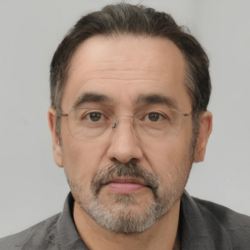President of the Soviet Union (TheodoresTomfooleries): Difference between revisions
No edit summary |
No edit summary |
||
| Line 50: | Line 50: | ||
The '''president of the Union of Soviet Socialist Republics''' ({{lang-ru|Председатель Союза Советских Социалистических Республик|lit=Chairman of the Union of Soviet Socialist Republics}}) is the {{wp|head of state}} of the [[Soviet Union (TheodoresTomfooleries)|Soviet Union]], nominated by the [[Presidium of the Supreme Soviet (TheodoresTomfooleries)|Presidium of the Supreme Soviet]] and elected by members of the [[Supreme Soviet of the Soviet Union (TheodoresTomfooleries)|Supreme Soviet]]. It is constitutionally the highest position in the country, although de-facto its powers are surpassed by the [[General Secretary of the CPSU (TheodoresTomfooleries)|General Secretary of the Communist Party]]. | The '''president of the Union of Soviet Socialist Republics''' ({{lang-ru|Председатель Союза Советских Социалистических Республик|lit=Chairman of the Union of Soviet Socialist Republics}}) is the {{wp|head of state}} of the [[Soviet Union (TheodoresTomfooleries)|Soviet Union]], nominated by the [[Presidium of the Supreme Soviet (TheodoresTomfooleries)|Presidium of the Supreme Soviet]] and elected by members of the [[Supreme Soviet of the Soviet Union (TheodoresTomfooleries)|Supreme Soviet]]. It is constitutionally the highest position in the country, although de-facto its powers are surpassed by the [[General Secretary of the CPSU (TheodoresTomfooleries)|General Secretary of the Communist Party]]. | ||
As the head of state, the president represents the Soviet Union both domestically and internationally. | As the head of state, the president represents the Soviet Union both domestically and internationally, directs the activities of the Presidium, and is responsible for the country's defense as a secretary of the [[Council of Defence (TheodoresTomfooleries)|Council of Defence]]. | ||
By law, the president must be a member of the [[Supreme Soviet of the Soviet Union (TheodoresTomfooleries)|Supreme Soviet]]. In practice, since {{wp|Leonid Brezhnev}} in 1977, the position has been held by every succeeding [[General Secretary of the CPSU (TheodoresTomfooleries)|General Secretary]]. The president also serves as a member of the [[Central Committee of the CPSU (TheodoresTomfooleries)|Central Committee of the Communist Party]]. | |||
The tenure of the presidency is five years and renewable with no term limits. | |||
{{Navbox Sov}} | {{Navbox Sov}} | ||
Revision as of 16:48, 14 August 2024
| President of the Union of Soviet Socialist Republics | |
|---|---|
| Председатель Союза Советских Социалистических Республик | |
 | |
| Style | Mr. President (informal) His Excellency (formal) |
| Type | Head of state |
| Member of | Central Committee of the CPSU Council of Defence Supreme Soviet |
| Residence | Kremlin Senate, Moscow |
| Nominator | Presidium of the Supreme Soviet |
| Appointer | Supreme Soviet |
| Term length | Five years, renewable with no limit |
| Constituting instrument | Constitution of the Soviet Union |
| Precursor | Chairman of the Presidium of the Supreme Soviet (1936-1989) |
| Inaugural holder | Grigory Romanov |
| Formation | May 25, 1989 |
| Deputy | President of the Supreme Soviet |
The president of the Union of Soviet Socialist Republics (Russian: Председатель Союза Советских Социалистических Республик, lit. 'Chairman of the Union of Soviet Socialist Republics') is the head of state of the Soviet Union, nominated by the Presidium of the Supreme Soviet and elected by members of the Supreme Soviet. It is constitutionally the highest position in the country, although de-facto its powers are surpassed by the General Secretary of the Communist Party.
As the head of state, the president represents the Soviet Union both domestically and internationally, directs the activities of the Presidium, and is responsible for the country's defense as a secretary of the Council of Defence.
By law, the president must be a member of the Supreme Soviet. In practice, since Leonid Brezhnev in 1977, the position has been held by every succeeding General Secretary. The president also serves as a member of the Central Committee of the Communist Party.
The tenure of the presidency is five years and renewable with no term limits.
